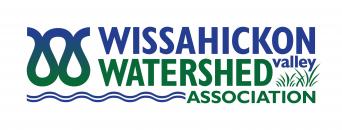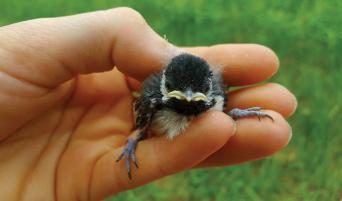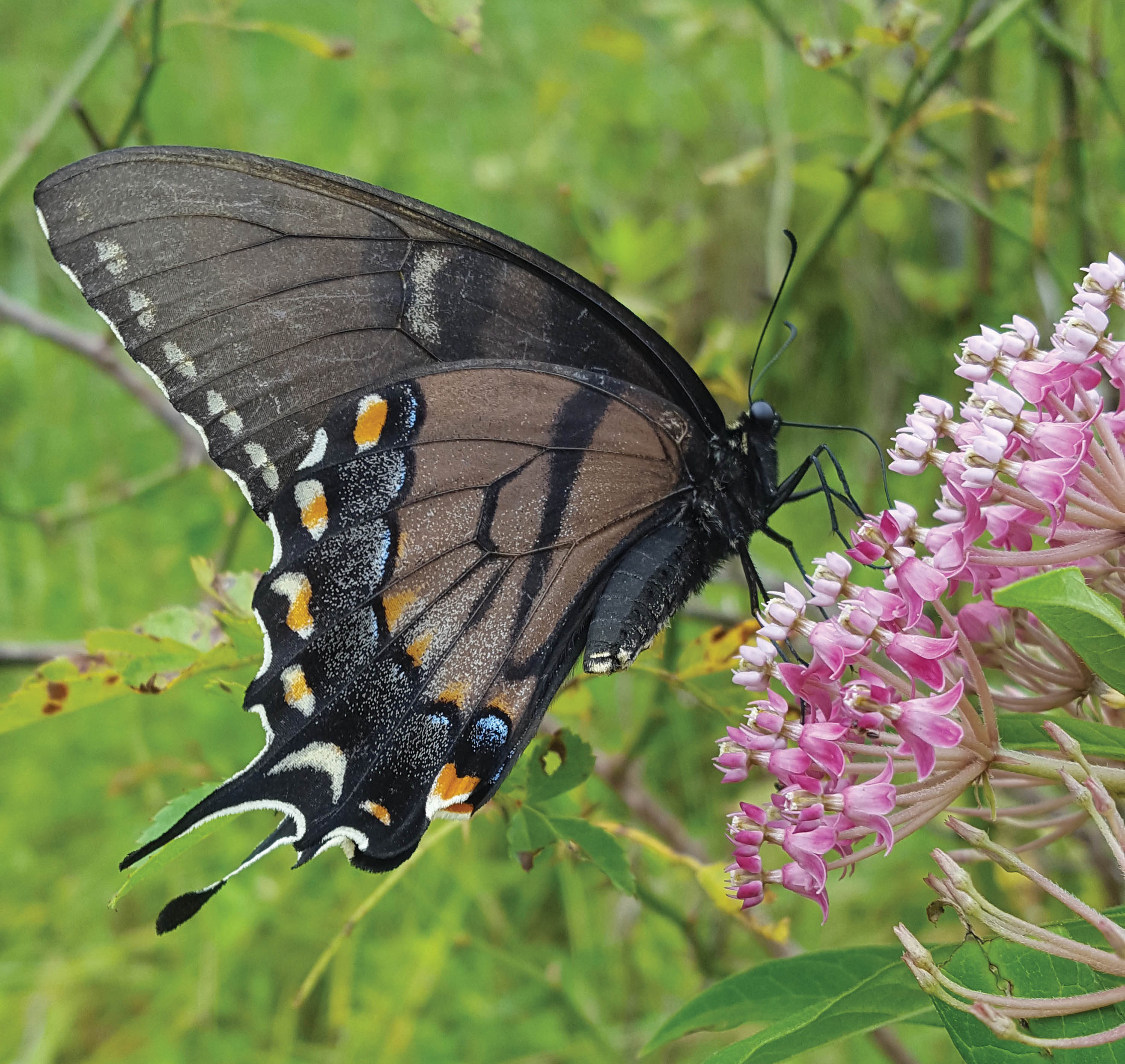
Caterpillars: They’re What’s For Dinner
Baby chickadees are small birds with big appetites. Like most songbirds, nestling chickadees are reared on a diet composed solely of invertebrates. A group of young chickadees will consume more than 5,000 caterpillars before they even leave their nest! The parents of this hungry brood have to work hard to supply their babies with the protein they need to survive and thrive. Their success depends on the quality of the habitat where they are nesting.
The Wissahickon Valley Watershed Association actively works to improve wildlife habitats on the more than 600 acres that comprise our 12 nature preserves. Many of these preserves have an agricultural history, and the existing habitats are often ecologically degraded. Most of our preserves are invaded by non-native species of trees, shrubs, and other plants. Non-native plant species are a problem because they utilize resources but are of limited value to native wildlife as food, shelter, and cover. For example, native oak trees support more than 500 native species of caterpillars, whereas not a single native caterpillar will feed on the leaves of the non-native butterfly bush (Budliea), an invasive plant from Asia. Our chickadee friends would struggle to find enough caterpillars to feed their young in habitats with a high abundance of non-native plants.
It is critically important that the remaining habitats in our developed region be of the highest quality attainable, in order to benefit the most wildlife (and people!) possible. For this reason, WVWA is investing time and dollars to improve the quality of habitats on our preserves. Our 50-acre Crossways Preserve in Blue Bell (3.5 miles from the Weavers Way Ambler store) is a perfect example of this effort. Crossways is one of our most diverse preserves, containing a variety of habitats including wetlands, meadows, historic forest, and shrub-scrub fields. Over the past five years, we have removed non-native plant species from approximately eight acres of meadow, forest, and wetland habitats and planted 354 native trees and shrubs in their place. Increasing the diversity of native plants on our preserves will allow us to support a greater abundance and diversity of wildlife, which also happens to make our preserves more interesting places to visit!
Ensuring that our open spaces provide high-quality habitat for birds and other wildlife is a community effort. WVWA has benefitted from 930 hours of volunteer service to achieve the habitat improvement projects at Crossways Preserve. As a Weavers Way member, you can fulfill your co-op work hours by helping us with this work. To get involved, contact Kelly Joslin at kelly@wvwa.org.


